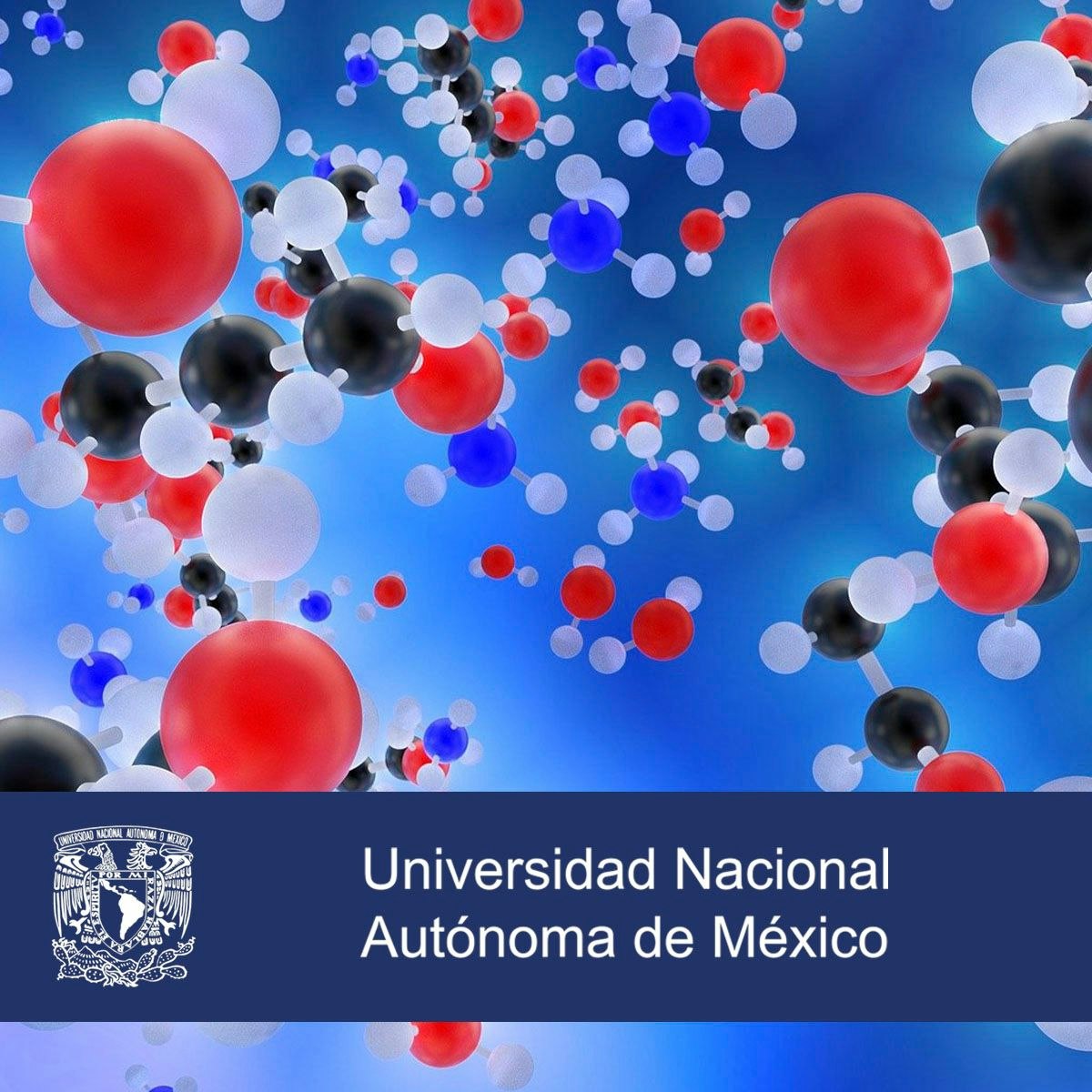
En este curso, ofrecido por la UNAM, conocerás cómo se forman los compuestos orgánicos y sus propiedades físicas generales, desde la composición del petróleo hasta la obtención de hidrocarburos y los diferentes grupos funcionales.
Comprenderás la estructura química de los diferentes hidrocarburos y grupos funcionales, así como las reacciones características que los distinguen.
Reconocerás la importancia y el impacto ambiental del petróleo y los materiales poliméricos.
El curso está conformado por cinco módulos que se abordarán durante cinco semanas.
What's inside
Syllabus
Importancia del petróleo y propiedades químicas del carbono
En este módulo se abordará la importancia del petróleo y su composición química. Estudiarás las propiedades químicas del carbono: su configuración electrónica, sus propiedades periódicas y la geometría de los compuestos, isomería y catenación.
Read more
Syllabus
Good to know
Save this course
Reviews summary
Química orgánica clara y completa
Activities
Participar en sesiones de estudio con compañeros
Show steps
Mejora tu comprensión del material del curso discutiéndolo y resolviendo problemas con tus compañeros.
Show steps
-
Forma un grupo de estudio con compañeros.
-
Reúnanse regularmente para discutir el material del curso.
-
Realicen cuestionarios y resuelvan problemas juntos.
Participar como voluntario en un laboratorio de investigación
Show steps
Adquiere experiencia práctica en un entorno de laboratorio y aplica tus conocimientos en un contexto de investigación.
Show steps
-
Contacta a los laboratorios de investigación y ofrece tus servicios como voluntario.
-
Asiste a las sesiones de capacitación y seguridad.
-
Participa en proyectos de investigación bajo la supervisión de un investigador.
Show all two activities
Participar en sesiones de estudio con compañeros
Show steps
Mejora tu comprensión del material del curso discutiéndolo y resolviendo problemas con tus compañeros.
Show steps
- Forma un grupo de estudio con compañeros.
- Reúnanse regularmente para discutir el material del curso.
- Realicen cuestionarios y resuelvan problemas juntos.
Participar como voluntario en un laboratorio de investigación
Show steps
Adquiere experiencia práctica en un entorno de laboratorio y aplica tus conocimientos en un contexto de investigación.
Show steps
- Contacta a los laboratorios de investigación y ofrece tus servicios como voluntario.
- Asiste a las sesiones de capacitación y seguridad.
- Participa en proyectos de investigación bajo la supervisión de un investigador.
Career center
Petroleum Engineer
Chemical Engineer
Organic Chemist
Polymer Chemist
Materials Scientist
Environmental Scientist
Geochemist
Biochemist
Toxicologist
Science Teacher
Patent Attorney
Technical Writer
Science Librarian
Forensic Scientist
Sales Representative
Reading list
Share
Similar courses
OpenCourser helps millions of learners each year. People visit us to learn workspace skills, ace their exams, and nurture their curiosity.
Our extensive catalog contains over 50,000 courses and twice as many books. Browse by search, by topic, or even by career interests. We'll match you to the right resources quickly.
Find this site helpful? Tell a friend about us.
We're supported by our community of learners. When you purchase or subscribe to courses and programs or purchase books, we may earn a commission from our partners.
Your purchases help us maintain our catalog and keep our servers humming without ads.
Thank you for supporting OpenCourser.



